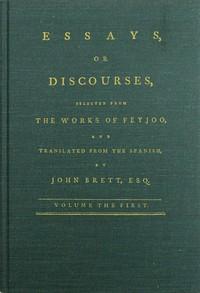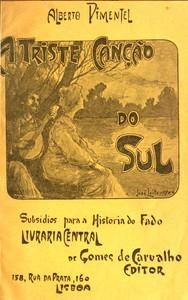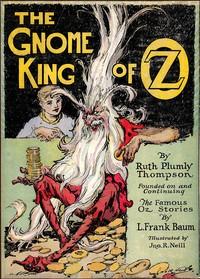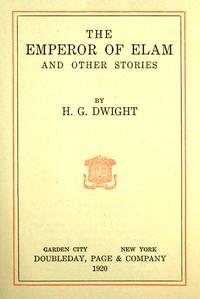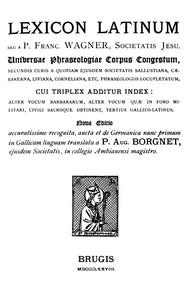|
|
Read this ebook for free! No credit card needed, absolutely nothing to pay.Words: 79281 in 12 pages
This is an ebook sharing website. You can read the uploaded ebooks for free here. No credit cards needed, nothing to pay. If you want to own a digital copy of the ebook, or want to read offline with your favorite ebook-reader, then you can choose to buy and download the ebook.

: Essays or discourses vol. 1 (of 4) by Feijoo Benito Jer Nimo Brett John Translator - Essays@FreeBooksSat 25 Nov, 2023 TO THE READER. My good reader, whoever you are, I have little expectation that you will be very propitious to this my undertaking, from a supposition, that you probably are already preoccupied in favour of many of the opinions which I combat; and I ought not to have such confidence, either in my persuasive powers, or in your docility, as to promise myself an early conquest of your prejudices, or a sudden attachment of your approbation. From hence it may follow, that stiff in your old opinions, you will condemn my sentiments, as false and injurious. Father Malebranche said justly, that those authors who write with an intention to banish common pre-possessions, should always conclude, that the public will receive their works with disgust. Whenever it happens that truth becomes triumphant, the victory advances by such slow paces, that the author while he lives, only enjoys the vain expectation, that his tomb will one day be crown'd with laurels. A striking example of this truth, was seen in the famous William Hervey, against whom, on account of his noble discovery respecting the circulation of the blood, the physicians of that time declaimed furiously, though all the professors of the science at present, venerate him as an oracle. In his life-time they loaded him with injuries; now he is dead they would place his image on the altars. I should here endeavour to win your mind to an admission of my maxims, and take the opportunity of shewing by various examples, how involv'd in error, are many of the most established opinions; but this being the intire object of my first discourse, I must refer you thither, for the perusal of my arguments on this head, I having plac'd that discourse in the front, as a necessary preliminary to this volume; but if you are not to be persuaded, and are obstinately bent on remaining a constant partizan of the Voice of the People, in the name of goodness pursue your course. If you are wise, I shall treat you liberally, and we shall not become angry with each other; for liberality will reprehend the sentiment, without ill using the author; but if you are simple, you, together with that infirmity, will not fail to possess the quality of inexorable also. I know very well, there is not a more rigid censurer of a book, than a man who is incapable of dictating a letter. Such people may say what they please of me, and treat my opinions as excentric, because they are out of the common road; but let us agree in a preliminary, to wit, that if they are to take the liberty of calling me extravagant, I may be allowed to say they are ignorant. I may perhaps be blamed, for giving the name of errors to all the opinions I controvert. The complaint would be just, if I did not remove the odium of the term by an explanation. I say then, that error in the sense I here take and use it, signifies no more than an opinion that I look upon as false, abstracted from, and without my determining upon the probability or improbability of it. Neither by the term common errors, do I mean to signify, that those I encounter are incident to all mankind, it is sufficient to apply this term to them, if they are admitted by the generality of the vulgar, or lead in their train, a more than ordinary number of the literati. This must be understood with a reservation, that I don't mean to introduce myself as a judge in those questions, which are mooted in various schools, especially such as regard Theological points: for what advances can I make on those subjects, which have been studied and considered with the most intense reflection, by so many men of eminence? or who am I, to have such confidence in my own strength, as to fancy that I am capable of entering the lists, where so many giants engage? In matters purely physical, this objection need not detain me; for those of this species which are treated of in other schools are very few, and those few with little or no reflection. I may be also blamed, when I am to touch upon many things which are mere matters of faculty, for having wrote in the Castilian Idiom: as an answer to this, it will be sufficient to reply, that no other reason is necessary to be given for so doing, than that I know of no reason against it. I do not deny, that there are truths, which should be hid from the vulgar, whose weakness exposes them to more danger by being informed, than they would be exposed to by remaining in ignorance; but this argument would militate with equal strength, against those truths going forth to the world in Latin, there being a great number of vulgar, among those who understand that language, and it passes easily from them, to those who understand no other than their mother tongue. I am so far from having the least intention to communicate pernicious matter to the public, that the principal design of this work, is to undeceive them in many points, which by being admitted as true, would be very prejudicial to them; nor is it reasonable, that a benefit which can be made universal, should not be enjoyed by every one. The common errors which I attack, do not always occupy the whole of the discourse in which I treat of them, and sometimes, many are comprehended in one and the same; either because they relate immediately to the matter of it, or because in pursuing the thread of the principal subject, they are found in the way, or fall in as it were by incidence. This method appeared to me the most convenient, as by writing a separate discourse upon every opinion I encounter, there being much to be said on some heads, and but little on others, there would result a compound or mass of parts extremely unequal. I expect many attacks, especially with relation to two or three of the discourses in this book, and when some of my friends apprize me, that I shall be loaded with injuries and abuse; I reply, that such treatment will only serve to convince me more firmly, of the truth of what I have written; it being certain, that he is doubtful of his own strength, who attacks with unfair weapons. If they oppose me with arguments, I will reply to them; if with sneers and scurrility, I shall instantly allow myself vanquish'd, as that is a mode of engaging, in which I never exercised myself. Adieu. VOICE of the PEOPLE. That ill-understood maxim, that God explains himself in the Voice of the People, authorizes the commonalty to triumph over sound judgment, and erect to themselves a tribunitial authority, capable of oppressing, and bearing down the dignity of literature. This is an error that is pregnant with an infinity of others, because, by establishing the position, that the voice of the multitude is the rule of truth, all the extravagances of the vulgar, would be venerated as inspirations of heaven. This consideration excites me to attack this error the first, upon a supposition, that by exploding this, I shall subdue many enemies in one, or at least, that it will be more easy to expunge other errors, by removing the patronage, which they receive from the common voice in the estimation of unwary men. But what necessity is there for beating round the world, to discover, that in various regions, the common opinion is the reverse of truth; even among the people who were called God's people, so far many times was the voice of the people from being the voice of God, that there was not the least semblance between them: no sooner was the voice of the people in unison with the divine voice, than it immediately changed to the greatest dissonance. Moses propounded to them the laws which God had given him; and all the people cried with one consent, "What the Lord has commanded let us do:" how beautiful was the sound of consonance between the two voices! but no sooner did the chapel-master Moses, who had put them in tune, turn his back, than the same congregation, after obliging Aaron to make two idols, lifted up their voice, and said, "These are the true Gods to whom we owe our liberty:" what horrible dissonance! Free books android app tbrJar TBR JAR Read Free books online gutenberg More posts by @FreeBooks
: A triste canção do sul (subsidios para a historia do fado) by Pimentel Alberto - Fados Portugal History and criticism; Folk songs Portuguese Portugal History and criticism@FreeBooksWed 08 Nov, 2023

: The Gnome King of Oz by Thompson Ruth Plumly Neill John R John Rea Illustrator Baum L Frank Lyman Frank Other - Oz (Imaginary place) Juvenile fiction; Fantasy fiction@FreeBooksWed 08 Nov, 2023
|
Terms of Use Stock Market News! © gutenberg.org.in2025 All Rights reserved.

